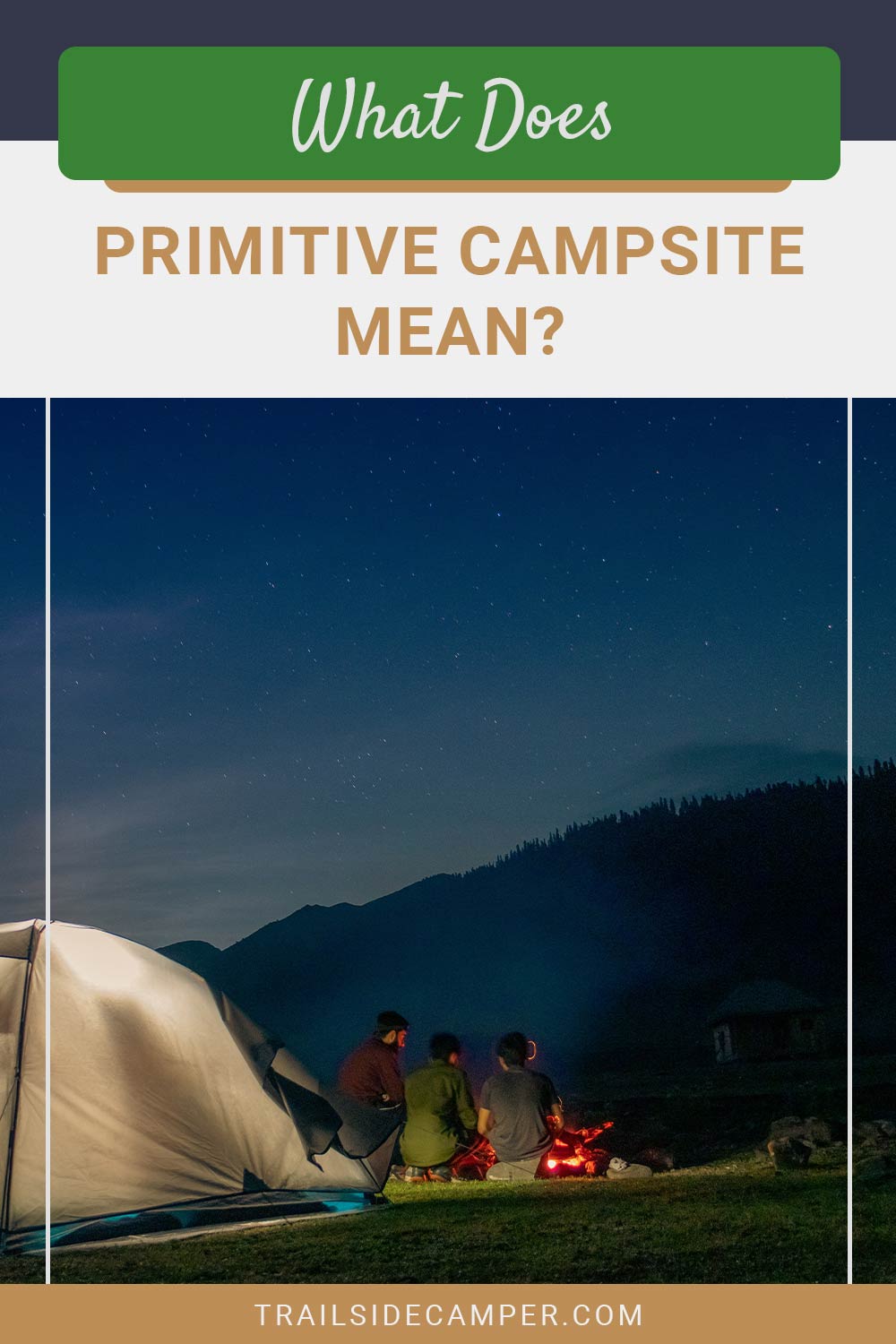Have you ever wanted to get away from it all and escape into nature but weren’t sure how? Primitive camping can be the perfect way to do just that! Imagine a pristine campsite full of beautiful trees, rivers, and wildlife – no running water or electric outlets in sight.
Sleeping under the stars, listening to nothing more than the peaceful sound of nature around you.
This is what primitive camping is all about. It’s your chance to experience some uninterrupted quality time with friends and family or even alone for an unforgettable solo adventure.
Read on to find out what a primitive campsite can mean for your next trip into the wilderness!
What is Primitive Camping Called?
Primitive camping, also commonly known as backcountry camping, is a style of camping that involves backpacking or hiking deep into the backcountry in order to make camp far away from any civilization.
This form of camping requires its participants to be self-reliant and prepared, with minimal reliance on outside sources. Furthermore, it requires backcountry campers to be especially aware of the environment around them and have excellent backcountry survival skills.
As such, backcountry camping has become popular among off-the-grid enthusiasts and is prized by survivalists who seek an increased challenge when out in nature.
What Do You Need For Primitive Camping?
To prepare for primitive camping, knowledge of the terrain, appropriate gear, access to clean water, and some sort of communication device are essential.
In addition, have knowledge of how to identify and navigate hazards that may occur in the wilderness, such as dangerous wildlife, poisonous plants, and changing weather patterns.
Gear wise, bring items like a tent or tarp for shelter; a warm sleeping bag, clothing layers, matches or lighters for fire, food and utensils, a hatchet or other tools you may need, and any other necessary supplies.
Also, don’t forget a source of clean drinking water, such as our own filtration device or bottled water ready to go. Dehydration can be serious business, so stay hydrated!
Finally, while there isn’t always cell service in most primitive camping destination spots, it’s important to have some form of emergency communication device just in case.
With knowledge, gear, water, and communication devices ready, you’ll be able to safely enjoy all that primitive camping has to offer!
Do All Primitive Campsites Look the Same?
No two primitive campsites are the same because each terrain offers its own natural beauty, untouched by man.
Sure, they all feature the bare essentials needed for camping outdoors, like a fire ring and nearby water source, but otherwise, there’s plenty of variation from site to site.
For example, pine forests offer tall trees that provide plenty of shade and have sheltered spots for cooking, mountaintops can have icy terrain and thin air for an extra rugged challenge, desert sites may include unique rock formations that create perfect hideaways.
Primitive camping allows you to experience nature based on its current state without intrusive interference – which also means that no two campsites will ever look the same!
What’s the Difference Between Camping and Primitive Camping?
Camping and primitive camping are two distinct vacation activities that offer their own special appeals. Camping usually involves staying in a fully-equipped campsite with electricity, running water, amenities such as showers and toilets, and maybe even wifi access.
Primitive camping is off-grid, you won’t find any of these amenities in a primitive campsite! Everything must be carried in with you and taken home when you depart; think of it as “pack it in, pack it out” camping.
Ultimately, the main difference between camping and primitive camping is the level of amenities and privacy they each provide.
While camping offers more comfort and connection to modern conveniences, primitive camping offers off-grid adventure away from crowds.
Are Primitive Campsites Usually in Remote Locations?
Yes, primitive camping spots are typically found in remote locations, away from the typical trails and holiday destinations.
Generally, campers looking for a rustic experience seek out the Bureau of Land Management or other public lands, which tend to be secluded from everyday life.
These sites provide a great opportunity to commune with nature and its wild inhabitants, and campers also enjoy the chance to connect with fellow outdoor lovers who share a common desire for solitude.
Moreover, most of these locations have fewer safety risks than public parks that may attract more people—and with them, extra dangers. So yes, primitive camping is often located in secluded areas away from the beaten path.
When backcountry camping, there are certain essential things you need to know in order to be successful. Preparation is key.
Make sure you have the proper gear, like a tent and sleeping bag, a strong shelter that can protect against storms and predators.
Plan how you will carry enough water for everyone in your group, and know where you can find food as well as ways to cook it and make sure that each of your group members has a way to communicate if needed.
Final Thoughts on Primitive Campsites
Take these elements into consideration and use caution when exploring the outdoors. Whatever happens on your adventure, don’t forget the main thing – Be safe and have fun!
Plan thoroughly, be watchful of your surroundings and look out for any potential risks before embarking on your journey into the unknown so that nothing gets in the way of a great experience.

